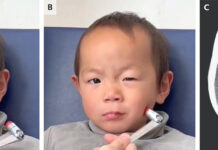Psychological disturbances in a 34-year-old woman after being raped at her home by her neighbor.
Post Traumatic Stress Disorder (PTSD) is the psychological distress that follows a trauma/assualt/any traumatic event, characterized by flashbacks, reliving, and severe psychological distress for a period of at least 1 month.
A 34-year-old married and working woman was enjoying a relaxing off-day at home in the summers with loud music. While she was undressed, a neighbor of hers barged in her house unannounced to ask her to lower down the volume. Seeing her undressed, he raped her despite a lot of resistance from her.
Soon after the sexual assault, she was distressed and guilty. She blamed herself for the rape and constantly thought of ways she could have avoided the assault.
The patient feels impure, dirty, and stupid. She started exhibiting signs of depression, such as withdrawal from a social gathering, losing interest in herself and her home. القمار على الانترنت The flashbacks of the assault don’t let her husband come near her. She felt withdrawn from her children too.
The patient gained weight and stopped self-grooming.
The culprit was arrested, but the patient was traumatized!
She had a constant fear of the assault and wanted to move from the neighborhood. The patient expressed suicidal thoughts on the examination, which also correlated with what her husband had revealed.
She was diagnosed with Post Traumatic Stress Disorder (PTSD). She was provided with care and treatment.
Post Traumatic Stress Disorder Stats:
The mental health of rape victims is a pressing issue. Despite surviving the sexual assault, the victims may not necessarily survive the flashbacks of the assault. PTSD is 6.2 times more likely in women who have been raped than women who have never been victims of crime. Approximately 31% or 1/3 of all the rape victims developed PTSD. Elders being rape victims aren’t a rare find. A study in Massachusetts revealed that the ages of rape victims were between 65-101, and 50% were raped by their relatives.

Social programs, cognitive behavioral therapy (CBT), psychodynamic, interpersonal, experiential, and body-centered therapies are management approaches. Pharmacological therapy should be given for symptoms, such as antipsychotics for hallucinations, delusions, psychosis, etc., antidepressants for depressive symptoms.
If the therapies are started during the early and right stages after the sexual assault, greater success can decrease the rate of PTSD after sexual assault.
References
http://www.info-trauma.org/en/
Chivers-Wilson KA. Sexual assault and posttraumatic stress disorder: a review of the biological, psychological, and sociological factors and treatments. العاب اون لاين مجانا Mcgill J Med. 2006;9(2):111-118.




